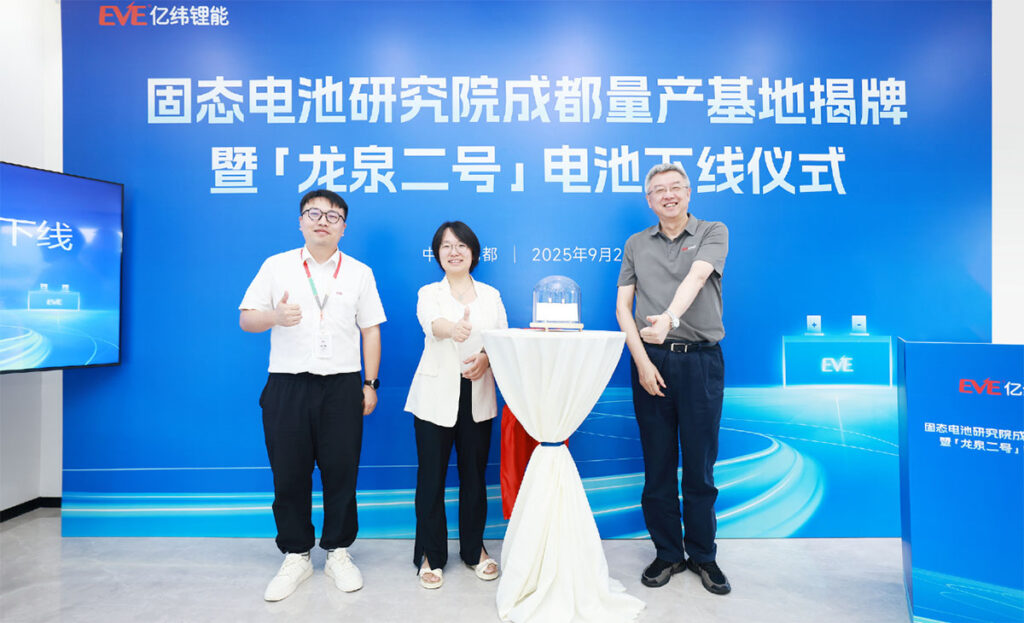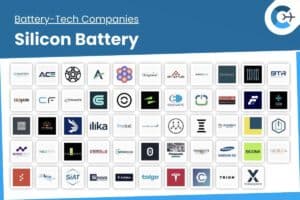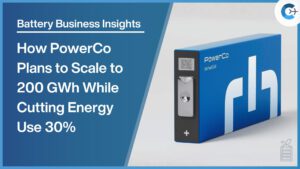Eve Energy has begun mass production of its all-solid-state “Longquan II” battery cell at a newly inaugurated facility in Chengdu, Sichuan. The company officially opened the 11,000-square-meter plant on September 2, with the first 10-Ah cells rolling off the line that same day. Upon reaching full capacity, the site is expected to produce nearly 500,000 cells annually, serving applications such as humanoid robots, low-altitude unmanned aerial vehicles, and advanced AI equipment.
Construction of the production base is divided into two phases. Phase one, set for completion in December 2025, will focus on manufacturing 60-Ah solid-state batteries. Phase two aims to expand output to 100 MWh per year by December 2026. The “Longquan II” cell delivers an energy density of up to 300 Wh/kg or 700 Wh/L, representing a key milestone in Eve Energy’s efforts to commercialize solid-state technology.
Eve Energy has outlined a multi-path development strategy for its “Longquan” series, committing significant financial, equipment, and R&D resources to push solid-state energy density to 400 Wh/kg and 1,000 Wh/L by the end of 2025. In mid-2024, the company identified sulfide and halide solid-state electrolyte routes as its primary technology pathways. At the time, an executive from Eve Energy’s research institute said the first all-solid-state batteries targeting hybrid vehicle applications were planned for a 2026 launch.
Globally, Eve Energy ranks among the largest battery manufacturers. Between January and July 2025, the company shipped 17.4 GWh of EV batteries, securing a 2.9 percent market share and placing ninth worldwide, according to data from SNE Research. The launch of the Chengdu facility and the debut of the “Longquan II” cell mark a significant step forward in the industrialization of solid-state batteries and underscore Eve Energy’s commitment to advancing next-generation energy storage solutions.
Source: CNEV Post
















